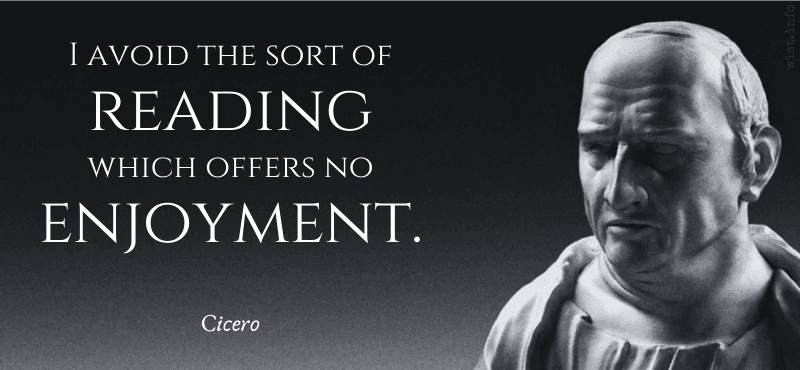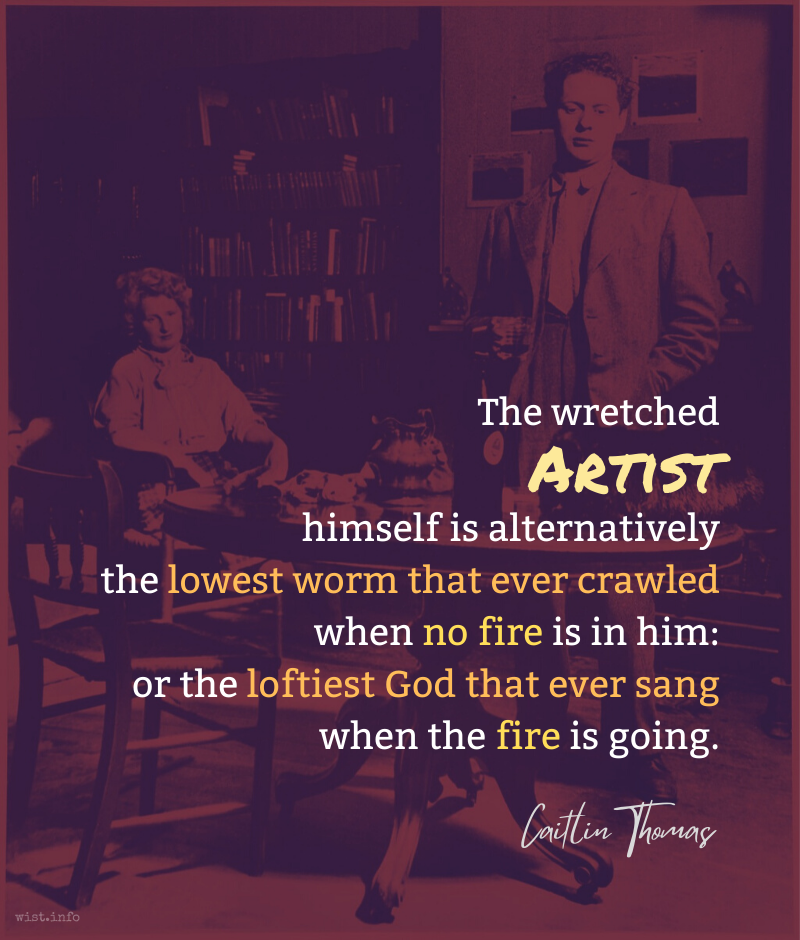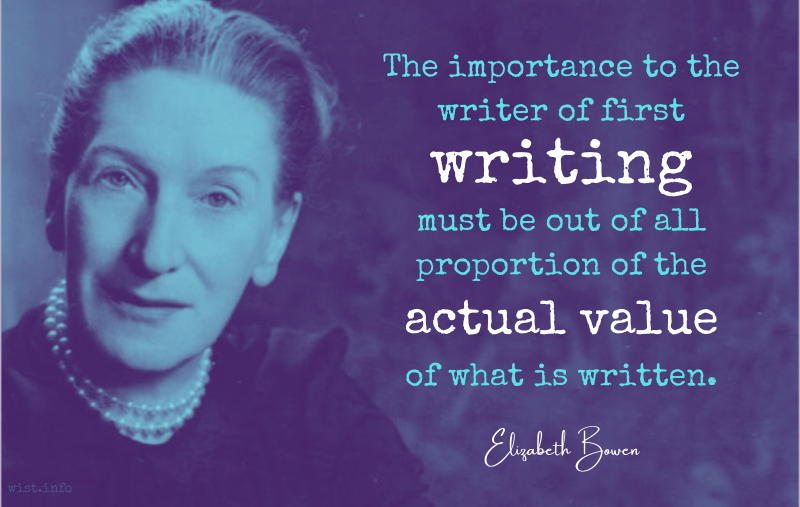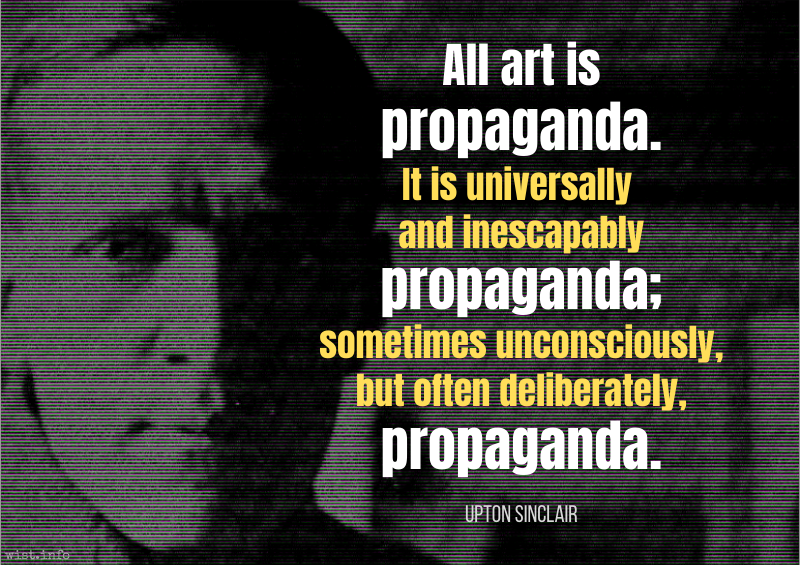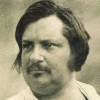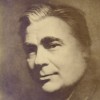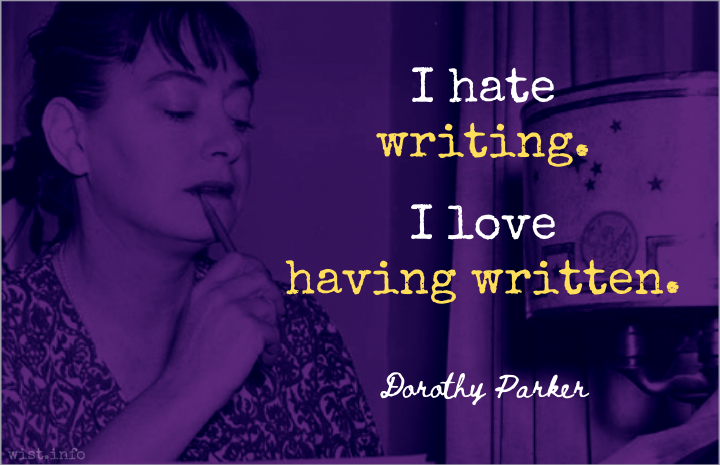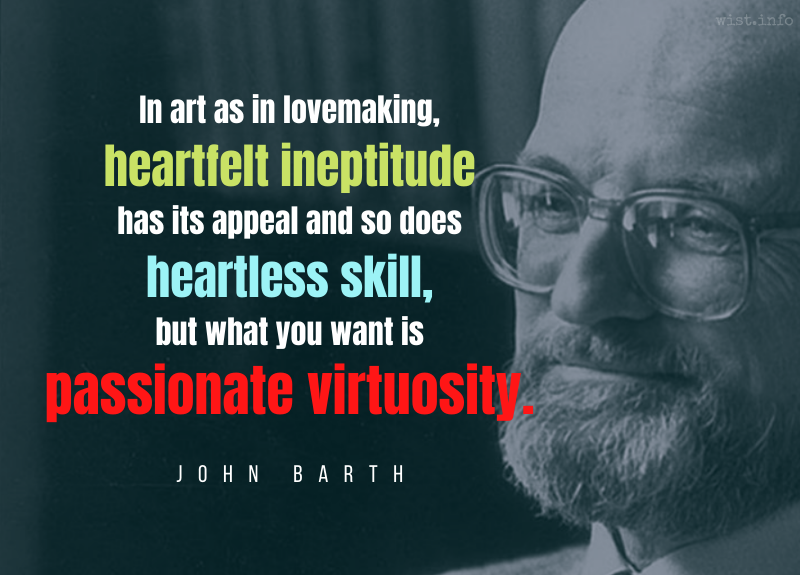You ask me why I have no verses sent?
For fear you should return the compliment.[Cur non mitto meos tibi, Pontiliane, libellos?
Ne mihi tu mittas, Pontiliane, tuos.]Martial (AD c.39-c.103) Spanish Roman poet, satirist, epigrammatist [Marcus Valerius Martialis]
Epigrams [Epigrammata], Book 7, epigram 3 (7.3) (AD 92) [tr. Hay (1755)]
(Source)
Compare to Epigram 5.73. (Source (Latin)). Alternate translations:
Why send I not to thee these books of mine?
'Cause I, Pontilian, would be free from thine.
[tr. Wright (1663)]
Why I send thee, Pontilian, not one of my writings?
It is lest thou, too gen'rous, return thine enditings.
[tr. Elphinston (1782), 12.10]
Why do I not send you my books, Pontilianus? Lest you should send me yours, Pontilianus.
[tr. Bohn's Classical (1859)]
Why, sir, I don't my verses send you,
Pray, would you have the reason known?
The reason is -- for fear, my friend, you
Should send me, in return, your own.
[tr. Webb (1879)]
You ask me why I send you not my books?
Lest you should send me yours, my friend, in turn.
[ed. Harbottle (1897)]
I never send my books, it’s true.
Know why? You’d send me your books too.
[tr. West (1912), "Reply"]
Why do I not send you my works, Pontilianus? That you, Pontilianus, may not send yours to me.
[tr. Ker (1919)]
You ask me why my books were never sent?
For fear you might return the compliment.
[tr. Pott & Wright (1921)]
Pontilianus asks why I omit
To send him all the poetry that is mine;
The reason is that in return for it,
Pontilianus, thou might'st send me thine.
[tr. Duff (1929)]
You ask me why I do not send you
All my latest publications?
Let in turn you send me, sir,
All your latest lucubrations!
[tr. Marcellino (1968)]
Why have I never sent
My works to you, old hack?
For fear the compliment
Comes punishingly back.
[tr. Michie (1972)]
Why don't I send you my little books, Pontilianus? Fore fear you might send me yours, Pontilianus.
[tr. Shackleton Bailey (1993)]
Why don’t I send you my little books?
Pontilianus, lest you send me yours.
[tr. Kline (2006), "No thanks"]
You ask me why I send you not my book?
For fear you'll say, "Here's my work -- take a look."
[tr. Wills (2007)]
Why don’t I send my books to you?
For fear you’d send me your books, too.
[tr. McLean (2014)]
You wonder why my little book is overdue,
dear Pontilianus?
It’s just that I don’t want to look at one from you.
[tr. Juster (2016)]
You ask me why I’ve sent you no new verses?
There might be reverses.
[tr. Burch (c. 2017)]
You fret I haven’t sent you, Wade,
My latest book for free;
The fact is that I’m too afraid
You’d send your book to me.
[tr. Mitchell]
Quotations about:
writing
Note not all quotations have been tagged, so Search may find additional quotes on this topic.
Bad writing is almost always a love poem addressed by the self to the self. The person who will admire it first and last and most is the writer herself.
Toby Litt (b. 1968) English writer and academic
“What makes bad writing bad?” The Guardian (20 May 2016)
(Source)
However you disguise novels, they are always biographies.
William Golding (1911-1983) British novelist, playwright, poet
“Universal Pessimist, Cosmic Optimist,” Interview by MaryLynn Scott, Aurora Online (1990)
(Source)
To go from being a competent writer to being a great writer, I think you have to risk being — or risk being seen as — a bad writer. Competence is deadly because it prevents the writer risking the humiliation that they will need to risk before they pass beyond competence. To write competently is to do a few magic tricks for friends and family; to write well is to run away to join the circus. Your friends and family will love your tricks, because they love you. But try busking those tricks on the street. Try busking them alongside a magician who has been doing it for 10 years, earning their living. When they are watching a magician, people don’t want to say, “Well done.” They want to say, “Wow.”
Toby Litt (b. 1968) English writer and academic
“What makes bad writing bad?” The Guardian (20 May 2016)
(Source)
There is a class of people wanting to be called philosophers, who are said to have produced many books actually in Latin. For my part I don’t despise them — I’ve never read them. But since those selfsame writers proclaim that what they write is neither systematic nor properly subdivided nor correct nor polished in style, I pass by reading what would bring no pleasure.
[Est enim quoddam genus eorum qui se philosophos appellari volunt, quorum dicuntur esse Latini sane multi libri; quos non contemno equidem, quippe quos numquam legerim; sed quia profitentur ipsi illi qui eos scribunt se neque distincte neque distribute neque eleganter neque ornate scribere, lectionem sine ulla delectatione neglego.]
Marcus Tullius Cicero (106-43 BC) Roman orator, statesman, philosopher
Tusculan Disputations [Tusculanae Disputationes], Book 2, ch. 3 (2.3) / sec. 7 (45 BC) [tr. Douglas (1990)]
(Source)
(Source (Latin)). Alternate translations:
For there is a certain Set of such as assume to themselves the name of Philosophers, who are said to have Books enough in Latin, which I do not despise, for I have never read them; but because the Authors profess themselves, that they write neither with distinction of Terms, nor distribution of Parts, nor elegancy of Language, nor any Ornaments; I neglect to give that reading which is no ways delightful
[tr. Wase (1643)]
For there is a farther certain tribe who would willingly be called philosophers, whose books in our language are said to be numerous, which I do not despise, for indeed I never read the: but because the authors themselves declare that they write without any regularity or method, without elegance or ornament: I do not choose to read what is so void of entertainment.
[tr. Main (1824)]
For there is a certain race, who wish to be called philosophers, whose Latin books, indeed, are said to be numerous, which I have no contempt for, really, because I never read them; but, since their authors themselves profess to write without either order or method, ornament or elegance, I neglect a reading which affords me no delight.
[tr. Otis (1839)]
For there is a certain class of them who would willingly be called philosophers, whose books in our language are said to be numerous, and which I do not despise, for indeed I never read them: but still because the authors themselves declare that they write without any regularity, or method, or elegance, or ornament, I do not care to read what must be so void of entertainment.
[tr. Yonge (1853)]
There is, indeed, a certain class of men who want to be called philosophers, who are said to have written many Latin books, which I do not despise, because I have never read them; but inasmuch as their authors profess to write with neither precision, nor system, nor elegance, nor ornament, I omit reading what can give me no pleasure.
[tr. Peabody (1886)]
There is a certain class of authors, who wish to be called philosophers, and who have apparently published many books in Latin. I do not, indeed, condemn them, because I never read them, but because they themselves confess that they have not written their books clearly or in a well-arranged manner, nor elegantly or with any ornament. I avoid the sort of reading which offers no enjoyment.
[tr. @sentantiq (2015)]
There exists a class of men who lay claim to the title of philosophers and are said to be authors of a great many books in Latin. These I personally do not despise, for the reason that I have never read them; but as the writers of these books on their own admission avoid in what they write a systematic approach, due subdivision, correctness, or a polished style. I have no interest in reading what brings no pleasure.
[tr. Davie (2017)]
I made up my mind long ago to follow one cardinal rule in all my writing — to be clear. I have given up all thought of writing poetically or symbolically or experimentally, or in any of the other modes that might (if I were good enough) get me a Pulitzer prize. I would write merely clearly and in this way establish a warm relationship between myself and my readers, and the professional critics — Well, they can do whatever they wish.
Isaac Asimov (1920-1992) Russian-American author, polymath, biochemist
Nemesis, “Author’s Note” (1989)
(Source)
For indeed it is possible that a man may think well, and yet not be able to express his thoughts elegantly; but for any one to publish thoughts which he can neither arrange skilfully nor illustrate so as to entertain his reader, is an unpardonable abuse of letters and retirement: they, therefore, read their books to one another, and no one ever takes them up but those who wish to have the same licence for careless writing allowed to themselves.
[Fieri autem potest, ut recte quis sentiat et id quod sentit polite eloqui non possit; sed mandare quemquam litteris cogitationes suas, qui eas nec disponere nec inlustrare possit nec delectatione aliqua allicere lectorem, hominis est intemperanter abutentis et otio et litteris. Itaque suos libros ipsi legunt cum suis, nec quisquam attingit praeter eos, qui eandem licentiam scribendi sibi permitti volunt.]
Marcus Tullius Cicero (106-43 BC) Roman orator, statesman, philosopher
Tusculan Disputations [Tusculanae Disputationes], Book 1, ch. 3 (1.3) / sec. 6 (45 BC) [tr. Yonge (1853)]
(Source)
Source (Latin). Alternate translations:
Now it is possible, that one may have true Conceptions, and yet not be able to express his Notions in proper Terms; but for a man to commit his thoughts to writing for the publick, who can neither put them in due method, nor illustrate them with clear Proofs, nor by any delightful Ornaments entertain his Reader, is the part of one that at no rate abuses his own time, and the benefit of Writing. Here∣upon they read their own Books among themselves, nor doth any one else meddle with them, but they that expect allowance to write after the same loose fashion.
[tr. Wase (1643)]
For indeed it may be that a man may think well, and yet not be able to express his thoughts elegant; but for any one ot publish thoughts which eh can neither methodize, nor illustrate nor entertain his reader, is an unpardonable abuse of letters and retirement: they, therefore, read their books to one another, which were never taken up by any but those who claimed the same privilege of writing.
[tr. Main (1824)]
For it may very well happen, that a man may think rightly, and yet be unable to give utterance to his sentiments with sufficient elegance. But, for any one to consign his thoughts to letters, who can neither arrange them with method, nor make them intelligible by illustration, nor attract the reader with any delight, is the part of a man who rashly abuses both his leisure and literature. And, therefore, let them read their books themselves with their friends; nor let them be touched by any, except by those who are like to need the same indulgence for the same license in writing.
[tr. Otis (1839)]
One may think correctly, yet be unable to give elegant expression to what he thinks; and in that case for a man to commit his thoughts to writing when he can neither arrange them, nor illustrate them, nor attract readers by anything that can give them delight, is the part of a man who outrageously abuses both leisure and letters. Such writers read their own books with their intimate friends, nor does any one else touch them except those who crave for themselves like liberty of writing.
[tr. Peabody (1886)]
Even when they have their arguments in order, they don't express them with any flair. They waste their free time -- and do a discredit to literature -- when they commit thoughts to writing without knowing how to arrange or enliven them or give any pleasure to the reader. And so they just end up reading each other's books! No one pays attention to them except people who hope to qualify for the same writer's licence.
[tr. Habinek (1996)]
But it can happen that someone may have a good thought which he cannot express well.
[tr. @sentantiq (2016)]
It is possible for a man to hold the right views but be incapable of expressing these with any elegance; but that anyone should entrust his thoughts to writing, without the ability to arrange them or to express them with clarity, or to attract the reader by offering him some pleasure, is characteristic of a man who is making an ill-disciplined misuse of both leisure and writing. The result is these fellows read their own books to their own circle and no one touches them except those who wish to be permitted the same freedom in writing.
[tr. Davie (2017)]
Since the objects of imitation are men in action, and these men must be either of a higher or lower type (for moral character mainly answers to these divisions, goodness and badness being the distinguishing marks of moral differences), it follows that we must represent men as either better than in real life, or as worse, or as they are.
[ἐπεὶ δὲ μιμοῦνται οἱ μιμούμενοι πράττοντας, ἀνάγκη δὲ τούτους ἢ σπουδαίους ἢ φαύλους εἶναι τὰ γὰρ ἤθη σχεδὸν ἀεὶ τούτοις ἀκολουθεῖ μόνοις, κακίᾳ γὰρ καὶ ἀρετῇ τὰ ἤθη διαφέρουσι πάντες, ἤτοι βελτίονας ἢ καθ᾽ ἡμᾶς ἢ χείρονας ἢ καὶ τοιούτους.]
Aristotle (384-322 BC) Greek philosopher
Poetics [Περὶ ποιητικῆς, De Poetica], ch. 2, sec. 1 / 1448a.1 (c. 335 BC) [tr. Butcher (1895)]
(Source)
Original Greek. Alternate translations:
The objects the imitator represents are actions, with agents who are necessarily either good men or bad -- the diversities of human character being nearly always derivative from this primary distinction, since the line between virtue and vice is one dividing the whole of mankind. It follows, therefore, that the agents represented must be either above our own level of goodness, or beneath it, or just such as we are.
[tr. Bywater (1909)]
Inasmuch as those who portray persons -- who must be relatively good or bad, since thus only can character regularly be classified, for the difference between any characters is relative badness and goodness -- portray such as are better than, worse than, or on a level with ourselves.
[tr. Margoliouth (1911)]
Since living persons are the objects of representation, these must necessarily be either good men or inferior -- thus only are characters normally distinguished, since ethical differences depend upon vice and virtue -- that is to say either better than ourselves or worse or much what we are.
[tr. Fyfe (1932)]
Since those who represent represent people in action, these people are necessarily either good or inferior. For characters almost always follow from these [qualities] alone; everyone differs in character because of vice and virtue. So they are either (i) better than we are, or (ii) worse, or (iii) such [as we are].
[tr. Janko (1987), sec. 1.3]
Since those doing the imitating imitate people acting, and it is necessary that the latter be people either of serious moral stature or of a low sort (for states of character pretty much always follow these sorts alone, since all people differentiate states of character by vice and virtue), they imitate either those better than we are or worse, or else of our sort.
[tr. Sachs (2006)]
The thing that representative artists represent are the actions of people and if people are represented they are necessarily either superior or inferior, better or worse, than we are. (Differences in character you see derive from these categories, since it is by virtue and vice that people are ethically distinct from each other.)
[tr. Kenny (2013)]
The history is right perhaps, but let us not forget, it was written by the victors.
[L’histoire est juste peut-être, mais qu’on ne l’oublie pas, elle a été écrite par les vainqueurs.]
Alexis Guignard, comte de Saint-Priest (1805-1851) French diplomat and historian
History of Royalty [Histoire de la Royauté] (1842)
(Source)
More books have resulted from somebody’s need to write than from anybody’s need to read.
Ashleigh Brilliant (b. 1933) Anglo-American epigramist, aphorist, cartoonist
Pot-Shots, #3273
(Source)
To write in plain, vigorous language one has to think fearlessly, and if one thinks fearlessly one cannot be politically orthodox.
George Orwell (1903-1950) English writer [pseud. of Eric Arthur Blair]
“The Prevention of Literature,” Polemic (Jan 1946)
(Source)
Anybody who likes writing a book is an idiot. Because it’s impossible, it’s like having a homework assignment every stinking day until it’s done.
Lewis Black (b. 1948) American comedian
Interview by Amelie Gillette, The Onion A.V. Club (7 Jun 2006)
(Source)
People think that you have these things called ideas and that writing is a matter of imposing them on the subject material, whereas it’s only in the writing that I discover what it is that I think.
Anthony Lane (b. 1962) British journalist, film critic
“A Writer’s Life,” interview by Will Cohu, The Telegraph (14 Dec 2003)
(Source)
Because as writers we’ll do anything — organize the closet, clean the garage — to avoid writing.
Lynn Vincent (b. 1962) American author, journalist
In The New Yorker, “Lives of the Saints” (15 Oct 2012)
(Source)
JERRY: Writing is also one of those things like … I’d rather fill in all the “o”s in the phone book. [Laughs]. You know what I mean? Anything is more fun than trying to write songs.
BOB: I’d rather be in the dentist’s chair. The blank page is the most frightening, most horrifying, the most toothy, snarling, god-awful thing I can imagine.
JERRY: Any excuse to not do it is good enough.
BOB: Man, look at those dishes mounting up. How can I work in this pigsty?
Jerry Garcia (1942-1995) American singer-songwriter and guitarist
Interview of Jerry Garcia and Bob Weir by Jon Sievert, Guitar Player Magazine (1993-05-20)
The interview was reprinted in Best of Guitar Player - Grateful Dead (1993-09). (Many thanks to Ryan Curry for sharing the photo.)
Don’t ask a writer what he’s working on. It’s like asking someone with cancer about the progress of his disease.
Jay McInerney (b. 1955) American novelist, screenwriter, editor [John Barrett McInerney, Jr.]
Brightness Falls, ch. 1 (1985)
(Source)
Broadly speaking, short words are best, and the old words, when short, are the best of all.
Winston Churchill (1874-1965) British statesman and author
The Times Literary Award luncheon, London (2 Nov 1949)
(Source)
No one has ever written, painted, sculpted, modeled, built, or invented except literally to get out of hell.
Antonin Artaud (1896-1948) French playwright, actor, director
Van Gogh, the Man Suicided by Society [Le Suicidé de la Société] (1947) [tr. Watson]
(Source)
Writing isn’t about making money, getting famous, getting dates, getting laid, or making friends. In the end, it’s about enriching the lives of those who will read your work, and enriching your own life, as well. It’s about getting up, getting well, and getting over. Getting happy, okay? Getting happy. […] Writing is magic, as much the water of life as any other creative art. The water is free. So drink. Drink and be filled up.
The most important things to remember about backstory are that (a) everyone has a history and (b) most of it isn’t very interesting. Stick to the parts that are, and don’t get carried away with the rest. Life stories are best received in bars, and only then an hour or so before closing time, and if you are buying.
Don’t get discouraged because there’s a lot of mechanical work to writing. There is, and you can’t get out of it. I rewrote the first part of A Farewell to Arms at least fifty times. You’ve got to work it over. The first draft of anything is shit.
So long as you write what you wish to write, that is all that matters; and whether it matters for ages or only for hours, nobody can say.
Virginia Woolf (1882-1941) English modernist writer [b. Adeline Virginia Stephen]
“A Room of One’s Own,” ch. 6 (1929)
(Source)
I was a model child. It was the teacher’s mistake I am sure. The box was drawn on the blackboard and the names of misbehaving children were written in it. As I adored my teacher, Miss Smith, I was destroyed to see my name appear. This was just the first of the many humiliations of my youth that I’ve tried to revenge through my writing. I have never fully exorcised shames that struck me to the heart as a child except through written violence, shadowy caricature, and dark jokes.
Louise Erdrich (b. 1954) American author, poet
Interview with Lisa Halliday, “The Art of Fiction” #208, The Paris Review (Winter 2010)
(Source)
On the inspiration behind Dot Adare's 1st Grade teacher putting her into the "naughty box" in The Beet Queen (1986).
The wretched Artist himself is alternatively the lowest worm that ever crawled when no fire is in him: or the loftiest God that ever sang when the fire is going.
Caitlin Thomas (1913-1994) British author, wife of Dylan Thomas [née Macnamara]
Not Quite Posthumous Letter to My Daughter (1963)
(Source)
To be a writer is to accept failure as a profession — which of us is Dante or Shakespeare? — and could they return, wouldn’t they fall at once to revising, knowing they could make the work better? In our own dwarfed way, we are trying for something like perfection, knowing it is unachievable (except of course that trying and failing is a better way of living than not trying).
John Ciardi (1916-1986) American poet, writer, critic
In Vince Clemente, “‘A Man Is What He Does With His Attention’: A Conversation with John Ciardi,” Poesis, Vol. 7 #2 (1986)
(Source)
The writer, like a swimmer caught by an undertow, is borne in an unexpected direction. He is carried to a subject which has awaited him — a subject sometimes no part of his conscious plan. Reality, the reality of sensation, has accumulated where it was least sought. To write is to be captured — captured by some experience to which one may have given hardly a thought.
As a novelist, I cannot occupy myself with “characters,” or at any rate central ones, who lack panache, in one or another sense, who would be incapable of a major action or a major passion, or who have not a touch of the ambiguity, the ultimate unaccountability, the enlarging mistiness of persons “in history.” History, as more austerely I now know it, is not romantic. But I am.
The writer’s only responsibility is to his art. He will be completely ruthless if he is a good one. He has a dream. It anguishes him so much he must get rid of it. He has no peace until then. Everything goes by the board: honor, pride, decency, security, happiness, all, to get the book written. If a writer has to rob his mother, he will not hesitate; the “Ode on a Grecian Urn” is worth any number of old ladies.
William Faulkner (1897-1962) American novelist
“The Art of Fiction,” Interview by Jean Stein, Paris Review #12 (Spring 1956)
(Source)
Chuck Palahniuk (b. 1962) American novelist and freelance journalist
Invisible Monsters, ch. 1 (1999)
(Source)
The importance to the writer of first writing must be out of all proportion of the actual value of what is written.
An artist is a creature driven by demons. He doesn’t know why they chose him and he’s usually too busy to wonder why. He is completely amoral in that he will rob, borrow, beg, or steal from anybody and everybody to get the work done.
William Faulkner (1897-1962) American novelist
“The Art of Fiction,” Interview by Jean Stein, Paris Review #12 (Spring 1956)
(Source)
In relation to his public, the artist of to-day […] walks at first with his companions, till one day he falls through a hole in the brambles, and from that moment is following the dark rapids of an underground river which may sometimes flow so near the surface that the laughing picnic parties are heard above, only to re-immerse itself in the solitude of the limestone and carry him along its winding tunnel, until it gushes out through the misty creeper-hung cave which he has always believed to exist, and sets him back in the sun.
Cyril Connolly (1903-1974) English intellectual, literary critic and writer.
“Writers and Society, 1940-3” (1943), The Condemned Playground (1946)
(Source)
But the point is that this is a political age. A writer inevitably writes — and less directly this applies to all the arts — about contemporary events, and his impulse is to tell what he believes to be the truth. But no government, no big organization, will pay for the truth. To take a crude example: can you imagine the British Government commissioning E. M. Forster to write A Passage to India? He could only write it because he was not dependent on State aid.
George Orwell (1903-1950) English writer [pseud. of Eric Arthur Blair]
“As I Please” column, Tribune (13 Oct 1944)
(Source)
If a theme or idea is too near the surface, the novel becomes simply a tract illustrating an idea.
The influence exercised over the human mind by apt analogies is and has always been immense. Whether they translate an established truth into simple language or whether they adventurously aspire to reveal the unknown, they are among the most formidable weapons of the rhetorician.
Winston Churchill (1874-1965) British statesman and author
“The Scaffolding of Rhetoric” (Nov 1897)
(Source)
Commonly abridged, "Apt analogies are among the most formidable weapons of the rhetorician."
To return to the matter of the persona, I repeat that one cannot wholly eliminate oneself for a second, and also sufficient, reason: any fiction (and surely poetry too?) is bound to be transposed autobiography. (True, it may be this at so many removes as to defeat recognition.) I can, and indeed if i would not I still must, relate any and every story I have written to something that happened to me in my own life. But here I am speaking of happenings in a broad sense — to behold and react, is where I am concerned a happening; speculations, unaccountable stirs of interest, longings, attractions, apprehensions without knowable cause — these are happenings, also.
Writing is like prostitution. First you do it for the love of it, then you do it for a few friends, and finally you do it for money.
Ferenc Molnár (1878-1952) Hungarian-American author, stage director, dramatist [a.k.a. Franz Molnar]
Quoted in George Jean Nathan, Intimate Notebooks (1932)
(Source)
Common form of a quote often misattributed to Molière. It original version actually appears to have originated with Molnar, who, when asked how he regarded his writing, answered, "Like a whore. First, I did it for my own pleasure. Then I did it for the pleasure of my friends. And now -- I do it for money."
More discussion here.
If you have any young friends who aspire to become writers, the second greatest favor you can do them is to present them with copies of The Elements of Style. The first greatest, of course, is to shoot them now, while they’re happy.
Dorothy Parker (1893-1967) American writer
“Book Reviews,” Esquire (1 Nov 1959)
(Source)
Review of William Strunk Jr and E. B. White, The Elements of Style, revised edition.
If the artist does not throw himself into his work as Curtius sprang into the gulf, as a soldier leads a forlorn hope without a moment’s thought, and if when he is in the crater he does not dig as a miner does when the earth has fallen in on him; if he contemplates the difficulties before him instead of conquering them one by one, like the lovers in fairy tales, who to win their princesses overcome ever-new enchantments, the work remains incomplete; it perishes in the studio where creativeness becomes impossible, and the artist looks on the suicide of his own talent.
[Si l’artiste ne se précipite pas dans son oeuvre, comme Curtius dans le gouffre, comme le soldat dans la redoute, sans réfléchir; et si, sans ce cratère, il ne travaille pas comme le mineur enfoui sous un éboulement: s’il contemple enfin les difficultés au lieu de las vaincre une à une, à l’example de ces amoureux des féeries, qui pour obtenir leurs princesses, combattaient des enchantements renaissants, l’oeuvre reste inachevée, elle périt au fond de l’atelier où la production devient impossible, et l’artiste assiste au suicide de son talent.]
Honoré de Balzac (1799-1850) French novelist, playwright
Cousin Betty [La Cousine Bette] (1846) [tr. Waring (1899)]
(Source)
Curtius is the young Roman patrician, Marcus Curtius. In 362 BC, a chasm opened up in Rome's forum, and soothsayers proclaimed it could only be filled by Rome's greatest treasure. Curtius mounted his horse and leapt into the chasm, which then closed over him.
Alt. trans.:
- "If the artist does not throw himself into his work, like Curtius into the gulf beneath the Forum, like a soldier against a fortress, without hesitation, and if, in that crater, he does not work like a miner under a fall of rock, if, in short, he envisages the difficulties instead of conquering them one-by-one, following the examples of lovers in fairy-tales who, to win their princesses, struggle against recurring enchantments, the work remains unfinished, it expires in the studio, wher production remains impossible and the artist looks on at the suicide of his own talent." [tr. Raphael (1992)]
- "If the artist does not fling himself, without reflecting, into his work, as Curtius flung himself into the yawning gulf, as the soldier flings himself into the enemy's trenches, and if, once in this crater, he does not work like a miner on whom the walls of his gallery have fallen in; if he contemplates difficulties instead of overcoming them one by one ... he is simply looking on at the suicide of his own talent." [Source]
- Original French.
A work of art has an author and yet, when it is perfect, it has something which is essentially anonymous about it.
Simone Weil (1909-1943) French philosopher
Gravity and Grace [La Pesanteur et la Grâce], “Beauty” (1947) [ed. Thibon] [tr. Crawford/von der Ruhr (1952)]
(Source)
An artist’s job is to make order out of chaos. You collect details, look for a pattern, and organize. You make sense out of senseless facts. You puzzle together bits of everything. You shuffle and reorganize. Collage. Montage. Assemble.
Let the reader find that he cannot afford to omit any line of your writing because you have omitted every word that he can spare.
PHILINTE: A gentleman may be respected still,
Whether he writes a sonnet well or ill.
That I dislike his verse should not offend him;
In all that touches honor, I commend him;
He’s noble, brave, and virtuous — but I fear
He can’t in truth be called a sonneteer.”On peut être honnête homme, et faire mal des vers,
Ce n’est point à l’honneur que touchent ces matières,
Je le tiens galant homme en toutes les manières,
Homme de qualité, de mérite et de cœur,
Tout ce qu’il vous plaira, mais fort méchant auteur.Molière (1622-1673) French playwright, actor [stage name for Jean-Baptiste Poquelin]
Le Misanthrope, Act 4, sc. 1, ll. 1144-48 (1666) [tr. Wilbur (1954)]
(Source)
Alt. trans.:
- "A man can be a gentleman and make bad verses. Such matters do not touch his honor, and I hold him to be a gallant man in every other way; a man of quality, of courage, deserving of anything you please, but -- a bad writer." [tr. Wormeley (1894)]
- "A man may be / A perfect gentleman, and write poor verse. / These matters do not raise the point of honor. / I hold him a true man in all respects, / Brave, worthy, noble, anything you will, / But still, a wretched writer." [tr. Page (1913)]
- "Anyone may be an honorable man, and yet write verse badly." [Bartlett]
business business business
grind grind grind
what a life for a man
that might have been a poetDon Marquis (1878-1937) American journalist and humorist
“pete the parrot and shakespeare,” archy and mehtabel (1927)
(Source)
As a carpenter can make a gibbet as well as an altar, a writer can describe the world as trivial or exquisite, as material or as idea, as senseless or as purposeful. Words are wood.
You want to cry aloud for your
mistakes. But to tell the truth the world
doesn’t need any more of that sound.Mary Oliver (1935-2019) American poet
“The Poet With His Face in His Hands,” New Yorker (4 Apr 2005)
(Source)
Collected in New and Selected Poems, Vol. 2 (2005), and The Best American Poetry, 2006.
I always make the first Verse well, but I’m perplex’d about the rest.
[Je fais toujours bien le premier vers: mais j’ai peine à faire les autres.]
Molière (1622-1673) French playwright, actor [stage name for Jean-Baptiste Poquelin]
The Romantick Ladies [Les Précieuses Ridicules], Act 1, sc. 11 (1659)
(Source)
Alt. trans.: "I always make the first verse well, but I have trouble making the others."
Every word is a messenger. Some have wings; some are filled with fire; some are filled with death.
I hate writing. I love having written.
Dorothy Parker (1893-1967) American writer
(Spurious)
Not found in any of Parker's works, and not attributed to her until several years after her death. The earliest rendition of a thought like this ("Don't like to write, but like having written") comes from novelist Frank Norris in a posthumous letter published in "The Bellman's Book Plate: The Writing Grind," The Bellman (4 Dec 1915).
More discussion here: Don’t Like to Write, But Like Having Written – Quote Investigator.
See also Pratchett.
My feeling about technique in art is that it has about the same value as technique in love-making. That is to say, on the one hand, heartfelt ineptitude has its appeal and, on the other hand, so does heartless skill; but what you want is passionate virtuosity.
John Barth (b. 1930) American writer
“An Interview with John Barth,” by Alan Prince and Ian Carruthers, Prism (Spring 1968)
(Source)
The quotation from the interview (originally credited only to Prince) was also included in the inside dust cover of Barth's short story collection, Lost in the Funhouse (1968), and is sometimes cited to that book.
The longer quote was paraphrased to the form in the graphic above on the dust cover of Charles B. Harris, Passionate Virtuosity: The Fiction of John Barth (1983):
In art as in lovemaking, heartfelt ineptitude has its appeal and so does heartless skill, but what you want is passionate virtuosity.
Harris later gives the full quotation inside his book.
Also used by Barth in "Dunyazadiad," Esquire (1972-07-01), reprinted in Chimera (1972):
Heartfelt ineptitude has its appeal, Dunyazade; so does heartless skill. But what you want is passionate virtuosity.
Home is in every sentence of your writing.
Maya Angelou (1928-2014) American poet, memoirist, activist [b. Marguerite Ann Johnson]
“The Art of Fiction,” Paris Review, #116, Interview with George Plimpton (1990)
(Source)




